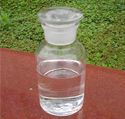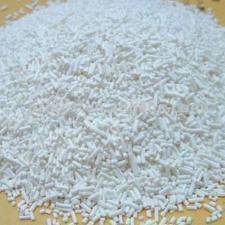Products
 News
NewsDairy Products Were Detected with Benzoic Acid in China
Recently, many media suddenly released a piece of shocking news "Chinese dairy products are mostly containing benzoic acid," which seems surprising in ordinary people. Because sodium benzoate is a common food additive, sodium benzoate is mostly white granules, odorless or slight odor of benzoin, slightly sweet taste, there is convergence; soluble in water, is an acidic preservative, alkaline medium without sterilization, antibacterial effect on bacteria, fungi, yeasts are inhibited; its antiseptic best PH is 2.5-4.0, in a solution of 5% when PH5.0 bactericidal effect is not very good. Sodium benzoate can penetrate the cell membrane into the cell body, interfering cell membrane permeability, inhibition of cell absorption of amino acids; into cells in vivo acidification of intracellular ionized alkaline reserve, and inhibit cellular respiratory enzymes, preventing the condensation of acetyl coenzyme A reaction, which play food preservation purposes. In addition, the British scholar has found that benzoic acid can damage mitochondrial DNA, leading to cell damage, causing neurological symptoms. Benzoic acid may also cause asthma and other allergic reactions. Benzoic acid and vitamin C can react to produce toxic benzene, but this has not been recognized. Drinks such as cola, which contain benzoic acid and vitamin C, while acute poisoning incidents has never been reported.
Expert says, detection of all dairy products, benzoic acid is not high, describes "not the manufacturers artificially added."
He speculated that the source of benzoic acid in dairy products may be associated with environmental factors, the production process and so on. For example, incomplete combustion of gasoline and other environmental pollution in the natural environment will eventually form benzoic acid; dairy farming in the feed and veterinary drugs abuse, it may bring benzoic acid.
Expert stressed that, according to the testing situation, Chinese dairy benzoic acid will not have an impact on public health. Even the highest consumption of benzoic acid that infant formula milk powder (88 mg/kg), it will not exceed the WHO recommended daily intake (5mg/kg body weight).
But he also pointed out that the acid in infants and young children and other special people worthy of attention.






